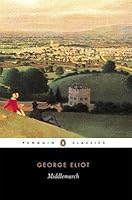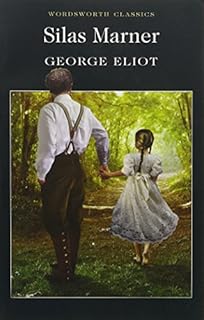
Mon–Sun: 8am – Midnight
Research Support
Mon–Fri: 8am – 5pm
Sat–Sun: By Appointment

 A Clockwork Orange
by
A vicious fifteen-year-old droog is the central character of this 1963 classic. In Anthony Burgess's nightmare vision of the future, where the criminals take over after dark, the story is told by the central character, Alex, who talks in a brutal invented slang that brilliantly renders his and his friends' social pathology. A Clockwork Orange is a frightening fable about good and evil, and the meaning of human freedom. When the state undertakes to reform Alex to "redeem" him, the novel asks, "At what cost?"
A Clockwork Orange
by
A vicious fifteen-year-old droog is the central character of this 1963 classic. In Anthony Burgess's nightmare vision of the future, where the criminals take over after dark, the story is told by the central character, Alex, who talks in a brutal invented slang that brilliantly renders his and his friends' social pathology. A Clockwork Orange is a frightening fable about good and evil, and the meaning of human freedom. When the state undertakes to reform Alex to "redeem" him, the novel asks, "At what cost?"
George Eliot was the pen name of Mary Ann Evans, a novelist who produced some of the major classic novels of the Victorian era. It is impossible to overestimate the significance of Eliot’s novels in the English culture: they went right to the heart of the small-town politics that made up the fabric of English society. Her novels were essentially political: Middlemarch is set in a small town just as the Reform Bill of 1832 was about to be introduced. She goes right into the minutia of the town’s people’s several concerns, creating numerous immortal characters whose interactions reveal Eliot’s deep insight into human psychology.
 Middlemarch
by
George Eliot’s novel, Middlemarch: A Study of Provincial Life, explores a fictional nineteenth-century Midlands town in the midst of modern changes. The proposed Reform Bill promises political change; the building of railroads alters both the physical and cultural landscape; new scientific approaches to medicine incite public division; and scandal lurks behind respectability. The quiet drama of ordinary lives and flawed choices are played out in the complexly portrayed central characters of the novel—the idealistic Dorothea Brooke; the ambitious Dr. Lydgate; the spendthrift Fred Vincy; and the steadfast Mary Garth
Middlemarch
by
George Eliot’s novel, Middlemarch: A Study of Provincial Life, explores a fictional nineteenth-century Midlands town in the midst of modern changes. The proposed Reform Bill promises political change; the building of railroads alters both the physical and cultural landscape; new scientific approaches to medicine incite public division; and scandal lurks behind respectability. The quiet drama of ordinary lives and flawed choices are played out in the complexly portrayed central characters of the novel—the idealistic Dorothea Brooke; the ambitious Dr. Lydgate; the spendthrift Fred Vincy; and the steadfast Mary Garth
 Silas Marner
by
Silas Marner: The Weaver of Raveloe is the third novel by George Eliot, published in 1861. An outwardly simple tale of a linen weaver, it is notable for its strong realism and its sophisticated treatment of a variety of issues ranging from religion to industrialization to community.
Silas Marner
by
Silas Marner: The Weaver of Raveloe is the third novel by George Eliot, published in 1861. An outwardly simple tale of a linen weaver, it is notable for its strong realism and its sophisticated treatment of a variety of issues ranging from religion to industrialization to community.
Also Available in Hirons Library:
John Ronald Reuel Tolkien was a major scholar of the English language. Twice Professor of Anglo-Saxon (Old English) at the University of Oxford, he also wrote a number of stories, including most famously The Hobbit and The Lord of the Rings, which are set in a pre-historic era in an invented version of our world. This was peopled by Men (and women), Elves, Dwarves, Trolls, Orcs (or Goblins) and of course Hobbits. He has regularly been condemned by the Eng. Lit. establishment, with honourable exceptions, but loved by literally millions of readers worldwide.
Also Available in Hirons Library:
Thomas Hardy was an English novelist and poet. A Victorian realist, he was influenced both in his novels and in his poetry by Romanticism. Char;es Dickens was another important influence. Like Dickens, he was highly critical of much in Victorian society, though Hardy focused more on a declining rural society. While Hardy wrote poetry throughout his life and regarded himself primarily as a poet, his first collection was not published until 1898. Initially, therefore, he gained fame as the author of novels. Hardy's poetry, though prolific, was not as well received during his lifetime. It was rediscovered in the 1950s, when Hardy's poetry had a significant influence on the Movement poets of the 1950-60s. Most of his fictional works – initially published as serials in magazines – were set in the semi-fictional region of Wessex. They explored tragic characters struggling against their passions and social circumstances. Hardy's Wessex is based on the Medieval Anglo-Saxon kingdom and eventually came to include the counties of Dorset, Wiltshire, Somerset, Devon, Hampshire and much of Berkshire, in southwest and south central England.
Also Available in Hirons Library:
Charles Dickens is much loved for his great contribution to classic English literature. He was the quintessential Victorian author. His epic stories, vivid characters and exhaustive depiction of contemporary life are unforgettable. His own story is one of rags to riches. Like many others, he began his literary career as a journalist. His own father became a reporter and Charles began with the journals 'The Mirror of Parliament' and 'The True Sun'. Then in 1833 he became parliamentary journalist for The Morning Chronicle. With new contacts in the press he was able to publish a series of sketches under the pseudonym 'Boz'. In April 1836, he married Catherine Hogarth, daughter of George Hogarth who edited 'Sketches by Boz'. Within the same month came the publication of the highly successful 'Pickwick Papers', and from that point on there was no looking back for Dickens.
Also Available in Hirons Library:
And much others. (Some are available in electronic resource, DVD and/or videorecording)
A keen observer of the trends of his time Orwell forged his two great novels: Animal Farm and 1984, from those observations and, particularly in the case of 1984 he emerged as a kind of prophet, warning society about where it seemed to be heading. In the novel people have become dehumanized, governed by an unseen administration that controls them with a fast-growing technology. The novel makes the future look bleak. Governments since the book came out have often been warned by their critics of bringing the country closer to nineteen eighty four, with the increase of such things as censorship and camera surveillance. The language Orwell used in writing this novel contains many words and phrases which he employed to create the dystopian world of the novel. Some of the words and phrases he invented have entered into the English language and are used routinely, eg. Big Brother, thought police, Room 101, thoughtcrime, doublethink.
Also Available in Hirons Library:
Jane Austen prods away at the social conventions of her time and how they fashion and condition the English landed gentry, the people she socialised with and whom she observed closely. She reveals the little preoccupations and concerns of the ladies and the gentlemen and the young women in those circles, and she leads us to laugh at them. Sometimes the goading is gentle and sometimes it’s savage. And every novel tells a gripping story, full of tension, with mysteries where we are kept waiting for their final resolution, when everything falls into place – very much like the best detective novels of our time.
Also Available in Hirons Library:
Born into a privileged English household in 1882, writer Virginia Woolf was raised by free-thinking parents. She began writing as a young girl and published her first novel, The Voyage Out, in 1915. Her nonlinear, free form prose style inspired her peers and earned her much praise. She was also known for her mood swings and bouts of deep depression. She committed suicide in 1941, at the age of 59.
Also Available in Hirons Library:
William Shakespeare was baptized on April 26, 1564, in Stratford-upon-Avon, England. From roughly 1594 onward he was an important member of the Lord Chamberlain’s Men company of theatrical players. Written records give little indication of the way in which Shakespeare’s professional life molded his artistry. All that can be deduced is that over the course of 20 years, Shakespeare wrote plays that capture the complete range of human emotion and conflict.
For more Shakespeare's work please visit our online catalog.